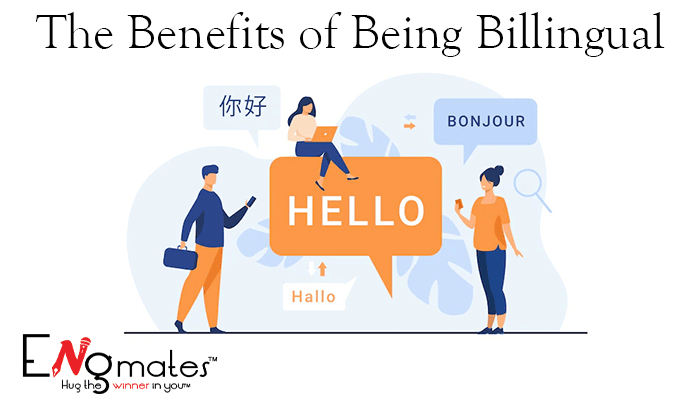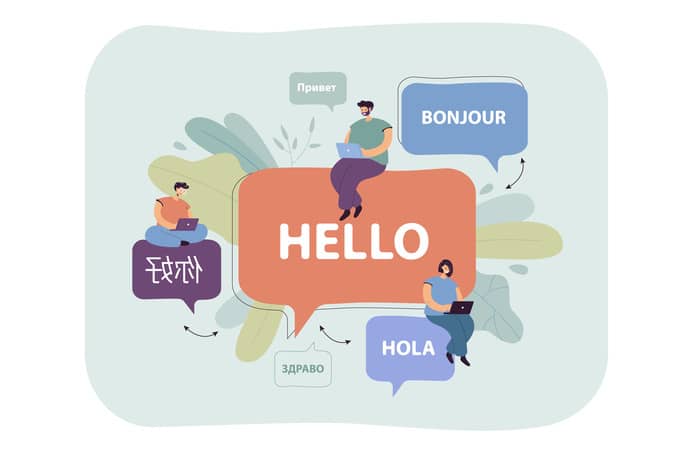
It typically takes months, if not years, of arduous study and perseverance to learn a foreign language, unless you were born and raised in a multilingual environment. More than ever, it appears that the hard work was worthwhile.
According to estimates, 40 to 50 per cent of the world’s population currently speaks two or more languages. Recent trends reveal important advantages of being multilingual, above and beyond a speaker’s comfort with language switching.
There are several benefits to having a multilingual brain, including better health, higher creativity, and more work prospects. Let’s explore some of the remarkable advantages of being multilingual.
It Will Sharpen Your Communication and Social Skills
According to the study Exposure to several languages improves communication skills in infancy, early exposure to different languages is essential for improving children’s communication abilities (2018). Youngsters will learn two languages more quickly and with a native accent if they are exposed to them early on.
According to a 2013 study, bilingual infants as young as 20 months can comprehend phrases with mixed-up codes (sentences in which two languages are spoken).
“Being bilingual has certain cognitive benefits and boosts the performance of the brain, especially one of the most important areas known as the executive control system.” said psychologist Ellen Bialystokat for the York University in Toronto.
The advantages of a bilingual brain become more apparent as we get older because they make it simpler for us to communicate with people from various cultural backgrounds.
It Will Improve Your Competitiveness in the Job Market
The majority of job advertisements now need proficiency in a second language, with Spanish, French, and German being the most common choices. This is a result of the expansion of the global economy.
If you’re applying to an international organisation, learning a second language gives you an advantage over other candidates and makes you stand out from hiring managers. It frequently has a greater potential compensation. Recent research has shown that bilingual workers can make up to 10% more per hour than their monolingual counterparts.
In general, your employer will view you as having more value if your profile is bilingual, and you’ll be more likely to be sent to international meetings and negotiations.
Also Read: 5 Reasons Why Slang Is Important in Language Learning
It Makes Learning Other Languages Easier
Bilingual students outperform monolingual students in this area by 13%, according to a study from the University of Haifa entitled “Advantages of Bilinguals Over Monolinguals in Learning a Third Language” (2013). Bilinguals find it considerably easier to learn a third or fourth language. That notion is supported by a 2017 study that was published in the journal Bilingualism: Language and Cognition. It contends that early bilingualism facilitates the acquisition of new languages later in life.
Of course, the third language chosen will have an impact on this factor. If you are fluent in Italian and speak English, you might want to try learning another Romance language, such as Spanish or Portuguese, which has the same Latin roots as Italian.
At Engmates, we use such cultural exchanges in our spoken English classes to make these sessions more engaging and productive.

It Will Make You a Better Multitasker
It would appear that bilinguals also have an advantage when it comes to multitasking. A bilingual person outperforms the ordinary monolingual when it comes to multitasking because they have a more developed ability to block one language while using another, claims the 2012 study The Cognitive Benefits of Being Bilingual.
According to the 2015 study Bilingualism as a Model for Multitasking, bilingual people can do many tasks more quickly than their monolingual counterparts. Why? Because bilingual persons are accustomed to transitioning between many grammatical, structural, and writing systems.
It Increases Awareness of Other Cultures and Improves Your Travel Experience
Fluency in the language of the destination will make for a far more immersive experience when travelling. Being bilingual makes it easier to meet and communicate with individuals from other cultures while travelling. Learning two (or more) languages can make it much easier for you to communicate and will enhance your travel experiences.
You’ll be able to strike up casual conversations with locals, locate tourist-free areas, and place the proper food orders at neighbourhood eateries. Everything becomes more enjoyable and seamless.
Learning more than one language opens doors to various civilizations, putting French, English, Spanish, German, and Italian cultures within reach.
Also Read: The Meaning of Hand Gestures Around the World
It Delays Symptoms of Dementia and Keeps the Brain Active
Research from 2021, which was published in the journal Neuropsychologia, showed that advanced language abilities can delay the onset of age-related cognitive disorders. Compared to monolingual patients, it can delay the onset of Alzheimer’s disease by an average of four to five years. These results were supported by Research Professor Dr Ellen Bialystok, whose findings point to the delayed onset of dementia symptoms in bilingual older adults.
“There is a set of cognitive processes known as the executive control system, which is the most important part of your mind. In a large program of research we have been able to show that this executive control system is enhanced in people who are actively bilingual.” – Ellen Bialystok, a psychology professor at York University, Toronto
Judith Kroll, a psychologist at Penn State University, conducted a study in 2015 that provided evidence in favour of the idea that learning a second language improves mental performance and keeps the brain healthy. In reality, a person’s performance on memory and reasoning tests improves the longer they study a second language and the more proficient they are.
It’s Worth Boasting About
The extraordinary capacity to flip between two languages should, in the end, be something to be proud of.
